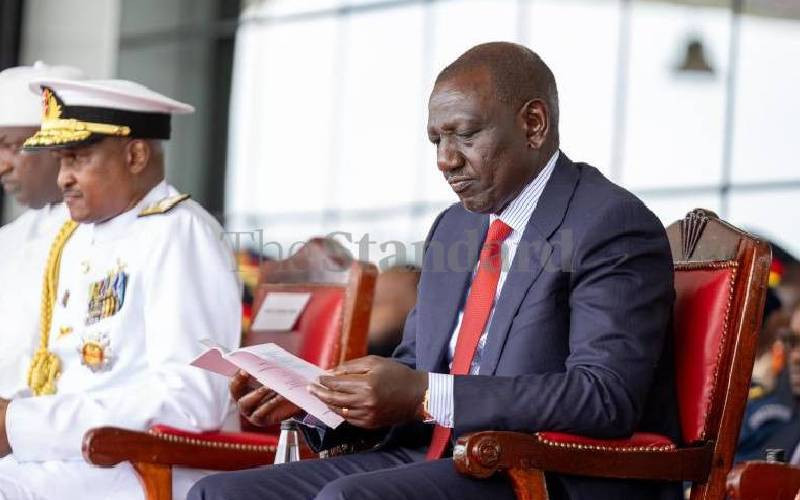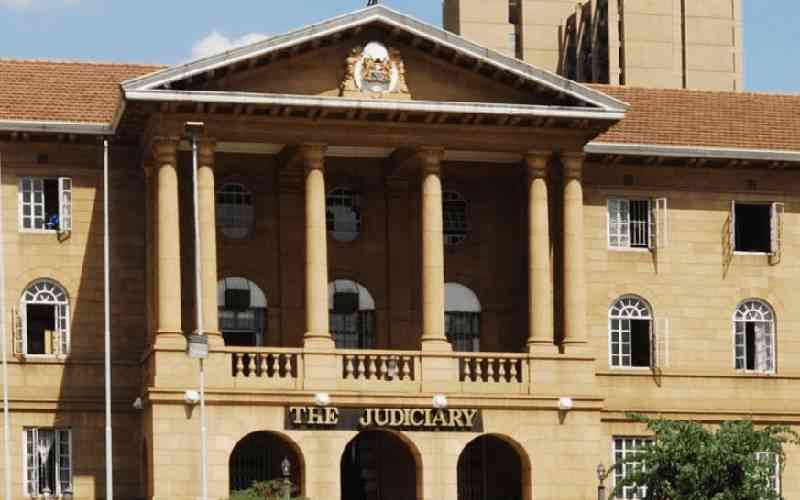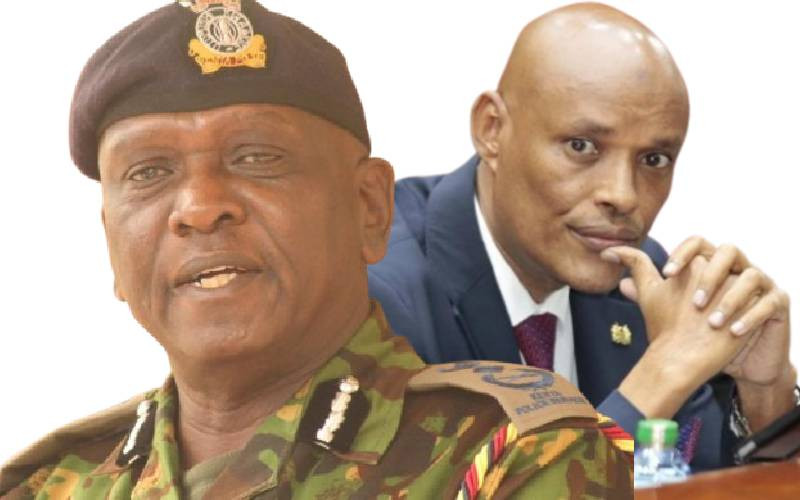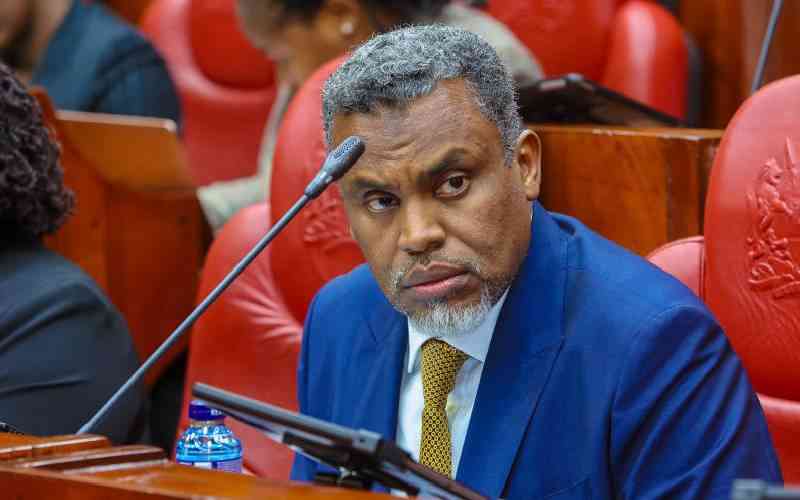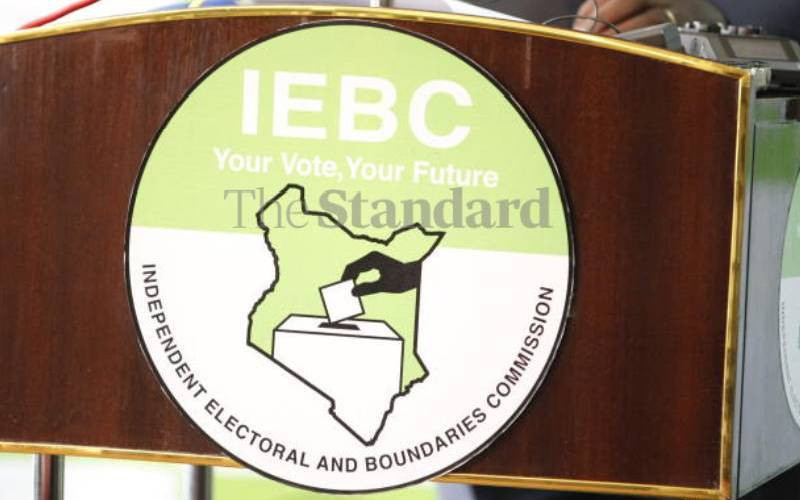The High Court has barred the Inspector General of Police from deploying police officers in civilian clothing or having unmarked vehicles without number plates in the streets during protests.
Justice Bahati Mwamuye ordered that those in uniform should have identifiable nametags and or service number badges for easy identification.
He also ruled that if plain clothes officers are deployed, they should not hide their faces.
The Judge also ordered that no police officer should use an unmarked car or one without number plates while either quelling or protecting protestors.
“Pending the inter-partes hearing and determination of the Application dated July 31,2024, a conservatory order be and is hereby issued requiring the fifth respondent to ensure full compliance with Paragraph 10 of the Sixth Schedule to the National Police Service Act in terms of ensuring that all uniformed Police Officers or persons acting under the direction, control, or in support of the National Police Service shall at all times affix a nametag or an identifiable service number in a clearly visible part of their uniform,” ruled Justice Mwamuye.
The Law Society of Kenya filed the case.
It sued an officer it alleges was behind the death of a protestor, Rex Masai, in a case where it wants the court to stop the Inspector General of Police from deploying officers in civilian clothes to quell protests.
Masai was silenced by a bullet while expressing his displeasure about Finance Act 2024 on June 18 this year.
However, Director of Renson Ingonga said that no one had shown up as a witness to give an account that would enable identification and arrest of the police officer who killed him.
Ingonga said the closed-circuit television (CCTV) footage could not identify the trigger.
LSK alleged that Isaiah Ndumba Murangiri was the police officer behind Rex’s killing.
The society sued the government to stop the deployment of police officers in civilian clothing during protests.
The society, in its case, argued that all instances of murders and police brutality are linked to officers who have no identification cards or uniforms.
The faith Odhiambo-led society stated that its push for police to be in uniform is for easy identification and accountability.
The court heard that it has become almost impossible to identify or single out police officers from goons as they are masking themselves to the extent of wrapping their faces with scarves.
Stay informed. Subscribe to our newsletter
LSK sued the Inspector General of Police, Attorney General, Nairobi County Commander Anderson Bungei, Central Police Station Officer Commanding Station (OCS) Moses Shikuku, and two police officers, Martin Mbae Kithinji and Ndumba
The society claimed that Mbae was, on June 18, 2024, caught on camera in civilian clothing while allegedly arresting activist and journalist Hanifa Farsafi at the Archives of Kenya, Nairobi.
It alleged that he manhandled her.
Ndumba, on the other hand, was accused of causing harm to protestors. He, too, was alleged to have worn civilian clothes.
“This incognito appearance enabled the officers to blend in with the peaceful protestors exercising their rights under Article 37 of the Constitution of Kenya. Further, the plainclothes police did not carry any form of identification and thus could not be distinguished from members of the public,” said LSK CEO Florence Muturi.
According to LSK, Ndumba was identified in multiple videos by peaceful protestors as among the officers who took advantage of his attire to cause a disturbance.
Muturi stated that what made it worse was the police use of vehicles without number plates. She was of the view that this was an indicator that they were out to either kill or maim but were hiding clues that would make them identifiable.
LSK accused the IG of unleashing armed police officers in civilian clothing against unarmed protestors.
It blamed the officers for turning peaceful protests against the Finance Act 2023 into a deadly wave of chaos.
The court heard that the officers without uniforms were central to cases of detention and kidnaps.
“As a result, many of the demonstrators do not know who unlawfully took them into police custody as they cannot identify the police officers who unlawfully abducted them. The failure of the police to identify themselves and the particular use of plain clothes worked to the deliberate frustration of the peaceful protesters and caused panic. This subsequently turned the peaceful protest violent,” said Muturi in her supporting affidavit.
LSK asked the court to hold both Mbae and Ndumba personally liable for violating protestors’ rights. At the same time, it sought an order requiring the police to deploy only officers in uniform and identifiable.
It also asked the court to force the IG, AG, Nairobi County Commander, Central OCS, Mbae, and Ndumba to pay Sh 5 million from their pockets, money that will be used for legal aid in cases concerning police accountability.
“To allow members of the police service to don civilian clothes and making them unaccountable cannot be said to be striving for highest standards of professionalism and discipline among its members. Neither can it be said to be making the National Police Service transparent, accountable, nor respecting human rights and freedoms,” said Muturi.
The case will be mentioned on August 14, 2024.
 The Standard Group Plc is a
multi-media organization with investments in media platforms spanning newspaper
print operations, television, radio broadcasting, digital and online services. The
Standard Group is recognized as a leading multi-media house in Kenya with a key
influence in matters of national and international interest.
The Standard Group Plc is a
multi-media organization with investments in media platforms spanning newspaper
print operations, television, radio broadcasting, digital and online services. The
Standard Group is recognized as a leading multi-media house in Kenya with a key
influence in matters of national and international interest.
 The Standard Group Plc is a
multi-media organization with investments in media platforms spanning newspaper
print operations, television, radio broadcasting, digital and online services. The
Standard Group is recognized as a leading multi-media house in Kenya with a key
influence in matters of national and international interest.
The Standard Group Plc is a
multi-media organization with investments in media platforms spanning newspaper
print operations, television, radio broadcasting, digital and online services. The
Standard Group is recognized as a leading multi-media house in Kenya with a key
influence in matters of national and international interest.


